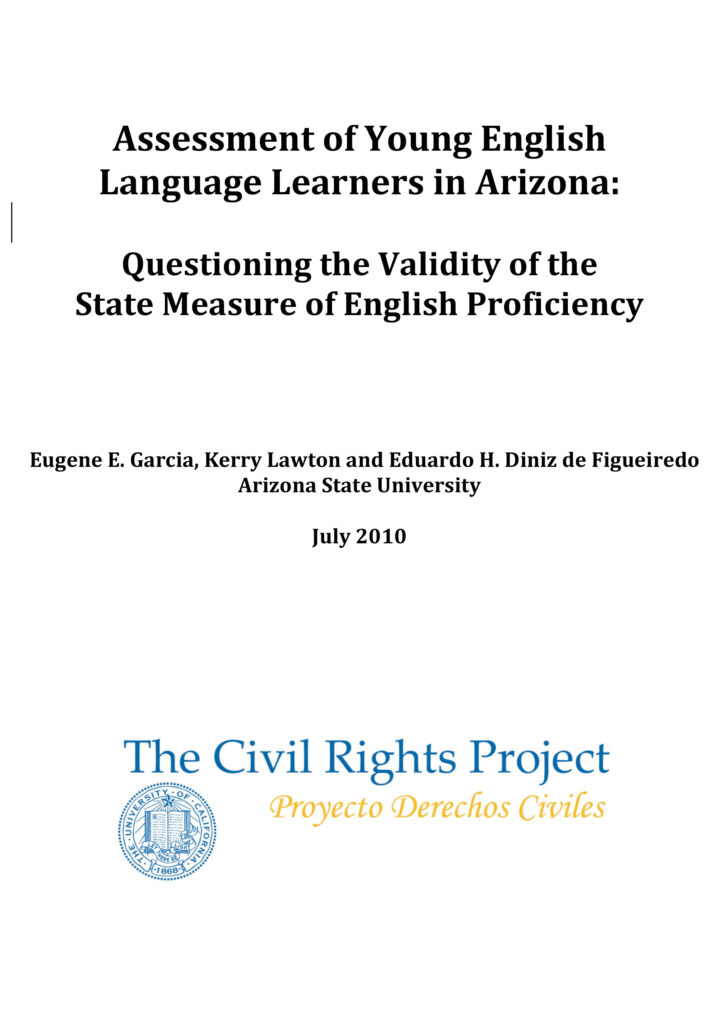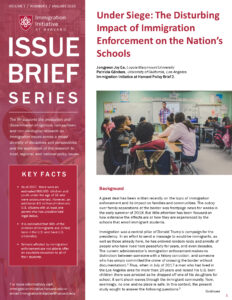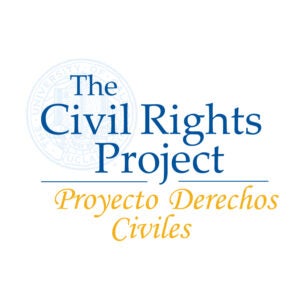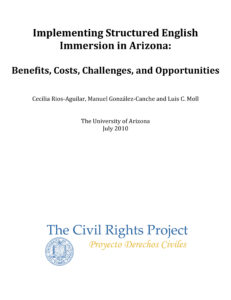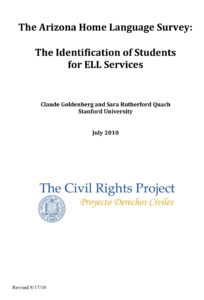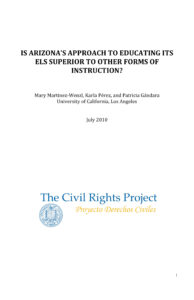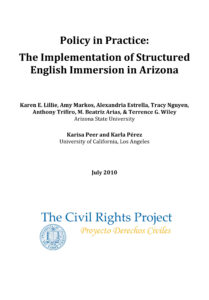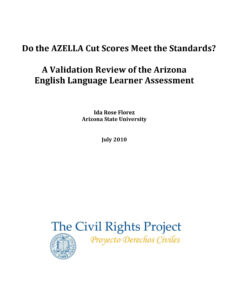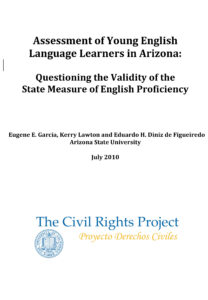This is one of nine papers of the Arizona Educational Equity Project: 21 senior scholars and advanced graduate students from four major research universities joined together, under the aegis of the Civil Rights Project at UCLA, to produce studies on the condition of English learner students in Arizona.
Abstract:
This study analyzes the Arizona policy of utilizing a single assessment of English proficiency to determine if students should be exited from the ELL program , which is ostensibly designed to make it possible for them to succeed in the mainstream classroom without any further language support. The study examines the predictive validity of this assessment instrument on ELLs’ performance on state required academic achievement tests at three grade levels. It finds that at subsequent grade levels after redesignation, the “one-test” AZELLA becomes less predictive of academic achievement, That is, the test over predicts student achievement, suggesting that many students may be under-served due to their scores the test. This finding calls into question Arizona’s “one-test” procedure for redesignating ELLs to a non-service category. Given the large and increasing size of the ELL student population in Arizona, the current focus on testing and accountability, and the documented problems in current assessment practices, improvement in instruments and procedures is critical. These improvements are necessary at all phases of the assessment process, but as this study indicates, the present policy is likely denying services these student need and violating the rights of these students to an equal educational opportunity.
For more information on the series, view the Arizona Educational Equity Project Overview.
The Arizona Educational Equity Project grew from the class action lawsuit of Horne v. Flores, which was initially brought against the state of Arizona in 1992 on behalf of English language learners (ELLs) there. The case reached the U.S. Supreme Court, which issued a ruling on June 25, 2009, establishing new legal standards for the EEOA but also returning the case to the Federal District Court in Arizona, to examine Arizona’s instructional policies for ELLs. The issues argued in the Arizona court had important implications for the educational rights of the tenth of U.S. students classified as ELL and for the federal law that protects them. The challenge to the research community was to provide the best possible information on how ELL students were faring under current Arizona educational policies. The Civil Rights Project spearheaded the Arizona Educational Equity Project to generate the most up-to-date research on the equality of educational opportunity for English learners.
In compliance with the UC Open Access Policy, this report has been made available on eScholarship:
